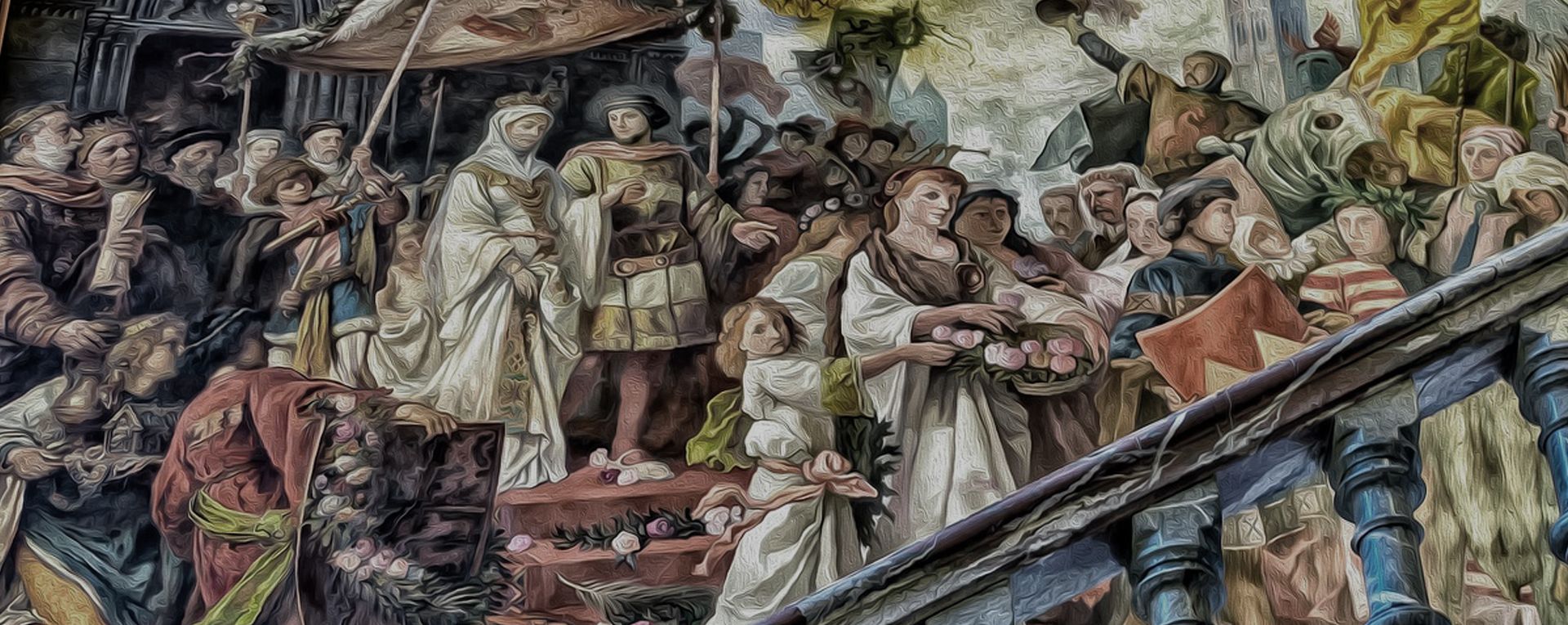-

The Norman adventurers



“A generation plants trees; another takes the shadow. "
(Chinese proverb)

When he does not find space in the company, the capable son looks for him elsewhere; and this can be an extraordinary opportunity for growth and expansion of the fields of action and markets, but if it is not a wisely governed choice it can turn into a springboard for revenge or, worse, revenge, personal and commercial, always with a harmful outcome. . This is the case of the Normans who were, in reality, one of the many branches that grew from the trunk of the northern Germanic populations. After having established their base in Scandinavia, in fact, they never stopped traveling: the Norwegians reached one after the other the Faroe Islands, Iceland and Greenland, until they reached the Americas; the Swedes, from the Baltic, went up the great rivers to found the Varangian kingdom of Kiev; while the Danes conquered half of Great Britain (Hamlet, as it is known, was prince of Denmark) and, in fact, Normandy. But that was not enough: arriving in the north of France in 910, already one hundred and fifty years later, the Duke of Normandy William the Conqueror crossed the Channel and, defeating King Harold's Saxons at Hastings in 1066, took the crown of England. On the other hand, always from Normandy, the expedition that aimed towards the center of the Mediterranean, fighting Arabs and Byzantines, had left already in 1017, and arrived to conquer Puglia (with Roberto il Guiscardo made duchy in 1059) and Sicily (it became a county in 1071 with his brother Ruggero d'Altavilla); the Normans thus founded a kingdom that will be one of the superpowers of the following century. Brilliant and enterprising, they combined guerrilla techniques learned in centuries of Viking raids with avant-garde armament for the time (the hauberk). Result? An extraordinary capacity for penetration, put into practice by Reykjavik to Syracuse and from York to Kiev ... But also a structural quarrel - so to speak -: in fact, the cadet sons were not satisfied with the minor fiefs assigned to them and left, as a rule with the father's blessing and the one a little more interested in the conquest of new lands than the firstborn. Except, then, to end up clashing on the battlefields (as in 1066, the Normans of William, against the Danes who had occupied Yorkshire since the ninth century), not to mention the centuries-old wars between the Anglo-Norman kings on the one hand , and the Franco-Normans on the other, for the control of the Channel first, and then of half of Europe. Ungoverned and much less disciplined divisions, anarchy and litigation: these are excellent ingredients for today's television series, but bad for planning any family succession.
Studio Temporary Manager™ S.p.A.
Verona: Centro Direzionale E33 - Viale del Lavoro, 33 - 37036 S. Martino Buon Albergo - ITALY - Milano: Isola for S32 - Via Sassetti, 32 - 20124 - ITALY
Tel. +39 045 8012986 - studio@temporarymanager.info - studio@pec.temporarymanager.info - P.IVA e C.F. 04098760236 REA n.391855
Cap. Soc. euro 50.000 (int. vers.) - Autorizzazione del Ministero del Lavoro e delle Politiche Sociali I003S032229 iscritta alla sezione IV dell’Albo delle Agenzie del Lavoro
© 2024 Studio Temporary Manager™ - Privacy/Cookie Policy - Cookies preferences - Partners - All rights reserved.





